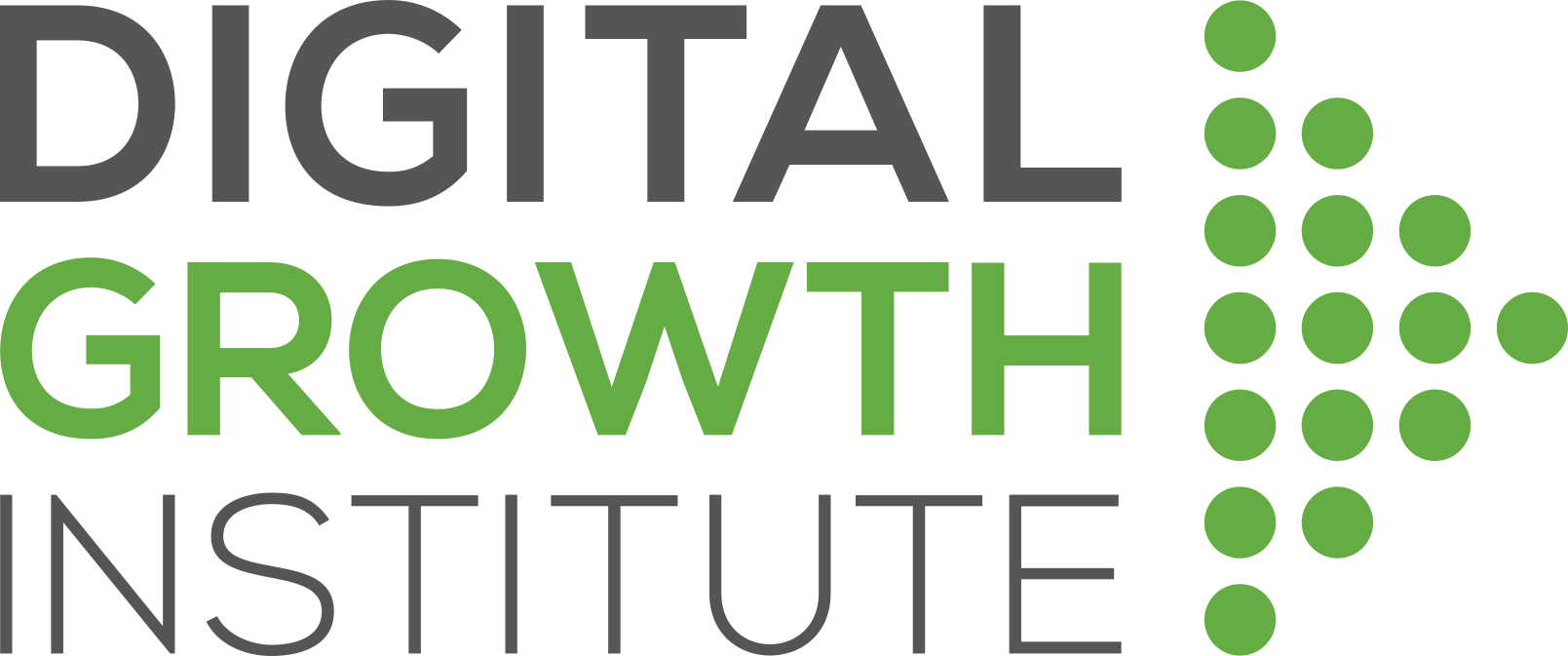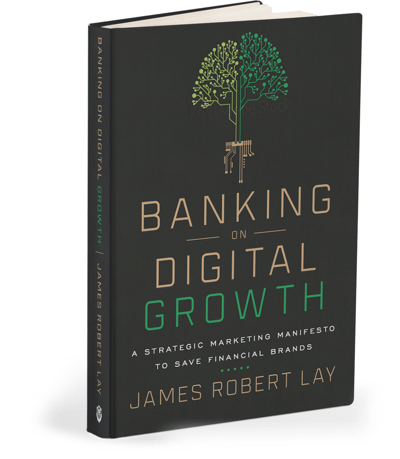A few years ago, Adobe published their Digital Distress Report in which they surveyed 1,000 US marketers in a variety of different industries about the changing dynamics of marketing. Their findings were startling:
- 3/4 of marketers feel marketing has change more in the last two years than in the last 50
- Over half of marketers are losing sleep over the challenges that face with digital marketing
- Only 40% of marketers think their company’s marketing is effective
- Just 9% of marketers feel they know their marketing is working
At Digital Growth Institute, we continue to find through our digital marketing planning engagements, financial marketers feel stressed, frustrated, and overwhelmed about bank and credit union digital marketing because their time is already spread so thin. This is because, like Adobe also found, the majority of financial marketers don’t have formal digital marketing training and are having to learn on the job.
Ann Lewnes, CMO of Adobe, shared, "Marketers are facing a dilemma: They aren't sure what's working, they're feeling under-equipped to meet the challenges of digital, and they're having a tough time keeping up with the pace of change in the industry. What's worse, no one hands you a playbook on how to make it all work.”
We understand how hard it can feel to try to break free from legacy marketing systems and thinking. But don't worry because we're on a mission to simplify digital marketing to help banks and credit unions grow from good to great.
Recently, Mike Lawson of CU Broadcast spoke with James Robert Lay about the Digital Growth Training Program and how this online program can help bank and credit union marketers bridge this digital knowledge gap and build a foundation for digital growth at their financial institution.
Mike Lawson
Hey everybody, Mike Lawson here with CU Broadcast. Welcome to our show, and on today's program, we're talking a little digital marketing for financial institutions with Mr. James Robert Lay from Digital Growth Institute. How are you, James Robert?
James Robert Lay
I'm doing well, Mike. Good to see you again.
Mike Lawson
Good to see you as well, sir. Hey, you guys have a pretty cool training program coming up here around the bend. It's called Digital Growth Training Program, and it's for credit unions and community banks. Give us a quick intro, give us a quick summary on what this training program's all about.
James Robert Lay
Yeah, it's a six-month program. We designed it to help credit unions and community banks take their marketing, transform their marketing, maximize their digital growth potential, and really just provide them with a framework so they have clarity and can move forward into digital marketing with confidence. I think that's the key word: confidence.
Mike Lawson
Exactly, because it's changing so fast these days, and there's so many more marketing layers now, especially in the digital sense.
James Robert Lay
Yeah. Traditionally, this is how we think about digital marketing for banks and credit unions. As a community bank or credit union, we have a website, we're doing some email marketing, we're doing some social media, but we're not seeing a lot of results. We're very fragmented.
That's the actual term I keep hearing from these marketers, is we're doing all of this stuff, we're doing digital advertising even, but we're not seeing any results. We don't have a playbook or a blueprint to put all of this together.
And so they feel overwhelmed. They feel frustrated, and oftentimes, they feel confused. We're wanting to help them overcome some of those feelings, some of those emotions, so that they can say, "You know what? I can do this."
What I've seen is that this journey, it really begins with education, because as I've had CEOs and CMOs tell me, "We just don't know what we don't know." We're wanting to help them kind of overcome what we deem as the three fears of digital marketing: fear of the unknown, fear of change, and fear of failure. We really have to address each one of those in a methodical order. We'll start with fear of the unknown. Like I said, that's the education piece. That's why we're doing this Digital Growth Training Program.
Mike Lawson
Yeah, that kinda segues in my next question is why did you create it? It sounds like you've heard from the audience. You heard their pain points, and now you want to help them. You want to answer and help out... 'cause it's all still so new.
James Robert Lay
It's new, but it's not new.
Mike Lawson
Okay.
James Robert Lay
About three years ago, Adobe put out this report called the Digital Distress Report, and it struck a nerve with us. We were like, "How does this affect financial marketers?" Because when Adobe looked at it, they looked at about 7,000 marketers and all these different verticals, including financial services.
What Adobe found, it almost echos what we're finding in some of our planning and consulting engagements, is that there's this knowledge gap for financial marketers. A lot of it's rooted in the fact that financial marketers traditionally have built their entire career, up to this point, around branches and around broadcast marketing. If we could help them get unstuck, or, to quote Yoda, "you must unlearn what you have learned," it provides them for a path of growth, personally, as well as for their organization going forward.
In Adobe report, the key point with that study for us was around 85% of marketers are having to learn digital on the job... Literally, Adobe said that's keeping them up at night. We want to help these guys go to sleep, and say, "You know what? Tomorrow's going to be a better day, because I know what I need to know to do what I need to do to grow."
Mike Lawson
We've also talked, offline here, that a lot of colleges aren't teaching the latest and greatest stuff, and so you go to your local college and say, "Hey, this is what's going on right now," which is huge, that practical knowledge is huge for folks coming right out of school.
James Robert Lay
Yeah, it's so frustrating to see someone's coming out of college. We hear it from even graduates that say, "I'm coming out. I'm moving into this digital world. They hire me because they think that I'm young, that I know this stuff because I do it every day," but the exact opposite's true.
They're coming out with a good traditional marketing foundation, for example, the floor piece, but they don't know how to put that into the context, into an operating model within the digital realm. When I do go and I do guest lecture, they're like, "Wow, this is the coolest stuff" that they've never heard before from the textbook, and from the professor. No one's to blame for this. It's just changing so rapid-
Mike Lawson
It's changing so fast. Exactly. Exactly. Can you give us a couple of nuggets, just kind of a couple of teasers of what your students will be learning in this course?
James Robert Lay
Yeah. Think of this as the foundation. What we're going to be doing is we're teaching off of our Digital Growth Blueprint. This is what we use in the real world when helping community banks, when helping credit unions, map out their opportunities. This really begins, once again, as the foundation.
We'll begin the program looking at the landscape as a whole, the changing consumer, the changing competition, because I think many financial institutions, they know yeah, all this stuff is changing, but particularly outside of the marketing department, how fast is this changing, and what implementations, particularly with the competition, does this have for us.
Take for example, SoFi. They started as student lending, went into consumer lending, just made the announcement recently that they're moving into the checking space, and so this is a whole new world. I think a lot of executives outside of the financial department, marketing department even, we just don't know what we don't know.
We're starting here at the foundation because once we get a lay of the land, then we can move into the next step, and that's defining a digital purpose. We're going to be taking a look at how to define consumer personas. We're going to be looking at the psychological mind of today's consumer buyer and how to map out the digital consumer journey, the different channels that we need. Like I said, it's really just a good framework, so that they can say, "You know what? This is what we need to do next, and we can move for and grow with confidence."
Mike Lawson
Yeah. To this, when you're talking about that, to me, putting myself into a marketing position, it sounds very exciting and scary at the same time because you have all these opportunities out there. And that's the exciting part of it, and it's so new and exciting and fun to do all that, but the scary part of it is the complexity of it now. Marketing is so much more complex because of the whole digital aspect of it now, and so having somebody like you in their corner, or anybody like that, would be such a huge help.
James Robert Lay
You hit the nail on the head. It is complex, and we understand that. That's our mission here, at Digital Growth Institute, is to simplify digital marketing so that banks and credit unions can continue to grow from good to great. There's a lot of legacy, and there's a lot of credit unions and community banks who've done a lot of good things. We're just wanting to help them continue to stay relevant and continue down the growth, and to see the growth that they've had in the past years.
Mike Lawson
Who is this course for? Who is it targeted for? Who's the audience?
James Robert Lay
I would say who's going to find the most value out of this is a financial marketer who is struggling getting buy-in to invest in digital growth. We've opened this up to not just the marketing department. We're really wanting to have financial marketers join us, but invite others within their organization, other key stakeholders, others in the marketing department, so that they can speak a common language, because if this knowledge is just kept in the marketing department, we have seen that we have to get buy-in from others, other key stakeholders, particularly at the executive level, to get true investment. At that point, we're really talking cultural transformation, so let's just take this by baby steps.
We're going to learn what the opportunities are. Then, we can get to the next step of this. We can gain commitment. Then we can get a plan. Before a lot of marketers are even getting a plan, they're having to gain this buy-in. We're taking a few steps back. It's really for a financial marketer who is struggling to get buy-in. They know that they need a change, but they're not sure what they need to do. Because of that complexity, because they've been rooted in legacy marketing systems and thinking, we're going to help them break free from that with this program.
Mike Lawson
Right on. One of the things I forgot to mention at the top of the show here is that one of the cool things, besides the content that you're going to provide, is that this course is online. You don't have to get on a plane and travel anywhere. You don't have to carve out massive hours of your schedule. This is all online stuff. Can you add to that, James Robert?
James Robert Lay
Yeah. We've been doing this training program now for the past three years in Houston a couple times a year. Every single time we would sell out this program. We kept hearing from other financial marketers, from banks and credit unions saying, "You know what? Can you just bring this online? 'Cause I don't have the travel budget to come and spend two days with you."
We kept having these conversations. I said, "Yeah," I said, "What if we broke this down as well to where it's not compressed in a two-day period, but it's over a much longer period of time, so it's easier to digest, and more importantly, retain the information and the insights that we're sharing."
It's a six-month program, three semesters, bi-weekly classrooms, with bi-weekly coaching, we're going to hold you accountable to help you keep moving forward. We don't want you to get stuck.
Commitment is between two to three hours a week, and so if you can almost build this into your schedule to where you're working as at least a minimum of a marketing department, kinda make this just every week we're gonna come together for two to three hours, I guarantee you will see growth, and you will see progress going forward.
Mike Lawson
Because of today's technology and the advancement anyway, it's totally interactive. Like you say, you have the coaching aspect of it, so I'm sure there's gonna be lots and lots of questions for you guys to help out. It's going to be okay, you do the curriculum, you got questions? Okay, field some questions, and get right back to them. I think that's the really cool part of it as well.
James Robert Lay
Yeah. There's really three different options here. It's learn on your own, which is there. I personally wouldn't recommend it because we have found there's a lot more accountability, not just from us, but from working with other financial institutions, there's a lot to learn from your peers. That's why we offer more of a middle option, a group coaching option. Then we have more of a premium option, which is more of that one-on-one individual coaching. It's a good step to say, "You know what, I need to move in this direction, but I just don't have the buy-in to stay invested to do a true formal plan."
What we see a lot of times is this is a first step, and so clients will come through this program, and then they say, "You know what? We need some additional guidance, just for us," and then they'll come back, and they'll say, "Can you help us to document, to take what we've learned, and document this into a plan, based upon our situation?" Think of this as a stepping stone. You mentioned no travel, no hotels, no time out of the office.
Mike Lawson
I love that aspect of it. Gosh, being on the road for these last few months, give me an online course where I can sit in my own chair and learn and take notes and stuff.
James Robert Lay
You're not kidding. My wife loves it too because-
Mike Lawson
Yes, you're home.
James Robert Lay
With four kids, she's like, "Are you really leaving again, and leaving me with four kids?" With this program, no. That was really the idea, is to make this something that, literally, financial marketers around the world could participate in and gain value from.
Mike Lawson
Such a great idea, great idea. All right, before we wrap up, James Robert Robert, let's look at the 64,000-foot level picture here. What is the main goal of this course for credit unions and community banks out there? What do you want to achieve for them?
James Robert Lay
I want them to gain a framework, a new way of thinking, thinking model, essentially, that they can take real world, practical how-to insights... This isn't a course of why you should do it. This is how you can do it. We've had some students take this, run with it, and truly transform their marketing departments, transform their bank, transform their credit union, and to look at some of these success stories.
We had a student at our live program, I ran into him at a conference, and he said, "Thank you so much." I said, "For what?" He said, "I took what you learned, just took one piece, we applied it," and they generated an additional half, I think, was it half a million? $500,000 in additional net interest income, for a program that they're running.
Mike Lawson
Wow.
James Robert Lay
This stuff works.
Mike Lawson
That says a lot right there. That says a lot right there. Where can folks find out more about this and register to attend?
James Robert Lay
We lay everything out on the website. If you have questions, you can just submit the contact form, and we'll follow up and help you determine if this is a good fit. That's the most important thing. We want to make sure that this is a good fit for a financial marketer, for their institution, because it might not be. Sometimes I've steered them away because of certain situations, so let's have a dialog. Let's have a conversation about that. We're here to help.
Mike Lawson
All right. Great message to end on. James Robert Robert Lay, thank you so much, sir. Digital Growth Institute and their Digital Growth Training Program coming up quick, so get over there and sign up, man. Thanks for the help. Thanks for the time.
James Robert Lay
Thanks for having me, as always. Appreciate it.
This article was originally published on June 29, 2017. All content © 2024 by Digital Growth Institute and may not be reproduced by any means without permission.





